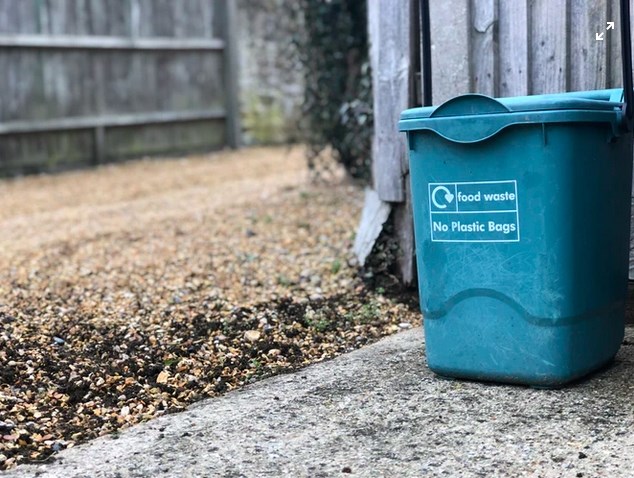
Image Credit: unsplash.com
April 18, 2021 - 9:00 AM
Growing mounds of garbage created by the growing number of people moving into the Okanagan and Thompson regions are prompting cities and regional districts to look at how to better manage organic waster.
There are plenty of good examples out there. Salmon Arm is one of the leaders. It started a curbside organic waste collection system in July 2019. Armstrong kicks off its collection system on May 1 and Kamloops is seeking public input before launching a pilot project planned for the fall. Port Coquitlam was the first city in Metro Vancouver to start a program, in 2009 and many others have followed.
The Regional District of the Central Okanagan could eventually have the largest collection system in the Interior but it could take two years just to get a pilot project launched.
Right now it collects the gases produced by rotting garbage, cleans it and uses it.
“Last year we finished the first step in a modern waste stream composition study,” Travis Kendel, manager of engineering services for the regional district told iNFOnews.ca. “That gave us a really good snapshot of our waste stream in the Central Okanagan, which is about 50 per cent compostable organics. That’s a huge amount of waste.”
That's a similar number to what other communities are finding.
That means less material to cover with dirt as the Glenmore landfill, which serves the entire region, continues to grow higher and higher.
“A curbside organic waste collection program is estimated to reduce the community’s carbon dioxide emissions by approximately 2,800 tonnes per year (equivalent to removing about 600 passenger vehicles) and save the city $1 million annually in costs related to landfill capacity,” the City of Kamloops states on its webpage.
It conducted a short online poll in February that 1,555 people responded to, with 84 per cent endorsing the program.
It has now launched a more in-depth survey that can be taken here.
READ MORE: Projected cost of Kamloops's organic waste program already rising
In the Central Okanagan, the regional district board has given staff the green light to start the process but a lot more research has to be done before a budget proposal goes back to the board for 2022, Kendel said.
There are all kinds of different methods of composting the material, ranging from open rows that can be turned over to composing in closed containers, Kendal said.
How best and where to compost have to be decided before conducting a pilot project. At this point, Kendel could not speculate on what the end product might be used for.
Odour is a big concern, which is why household food waste isn’t supposed to go into yard waste bins.
There are also different ways the collection can be done. Some communities want the compost to be put in bags inside curbside bins, similar to regular garbage. Others provide small indoor bins that can be dumped into larger curbside bins for collection.
While Kendel is keen to see how the Kamloops pilot project works, each community has its own specific needs and methods, he said. A Central Okanagan program would need buy-in from member communities since garbage collection is handled by the regional district there while Kamloops provides its own garbage collection service.
Even those who do their own backyard composting can benefit since municipal systems take many more items than the typical fruit and vegetable scraps that go into most household composts.
The list of items accepted in Salmon Arm includes:
-
Meat and bones
-
Fat and grease
-
Dairy products
-
Dry and cooked pasta
-
Soiled paper and cardboard (eg. greasy pizza box or take-out food bag)
-
Paper towel, napkins, facial tissue
-
Waxed and parchment paper
-
Wood items such as toothpicks, popsicle sticks and chop sticks
-
Pet or human hair is also acceptable
For more information on what other B.C. cities are doing, go here.
To contact a reporter for this story, email Rob Munro or call 250-808-0143 or email the editor. You can also submit photos, videos or news tips to the newsroom and be entered to win a monthly prize draw.
We welcome your comments and opinions on our stories but play nice. We won't censor or delete comments unless they contain off-topic statements or links, unnecessary vulgarity, false facts, spam or obviously fake profiles. If you have any concerns about what you see in comments, email the editor in the link above.
News from © iNFOnews, 2021